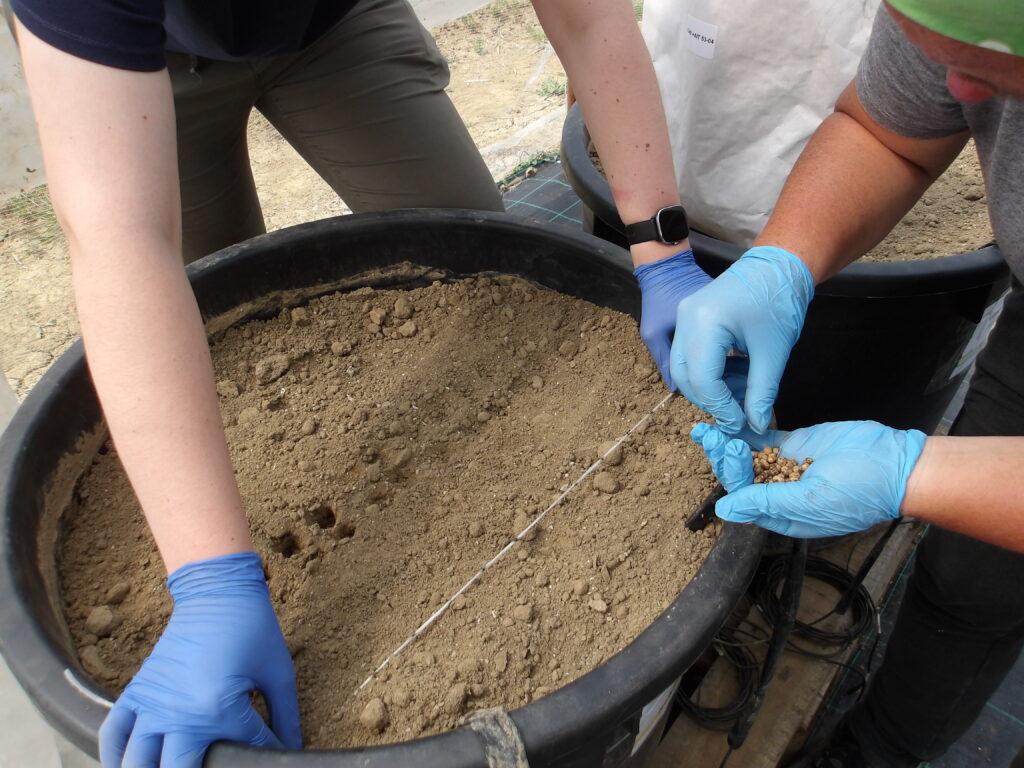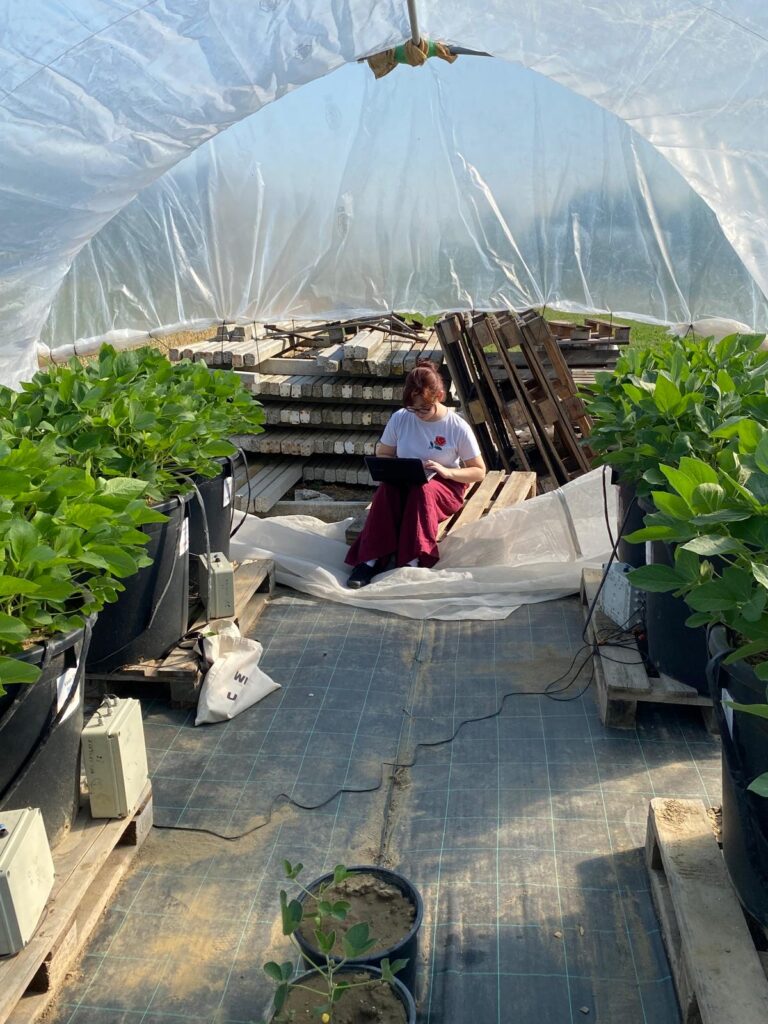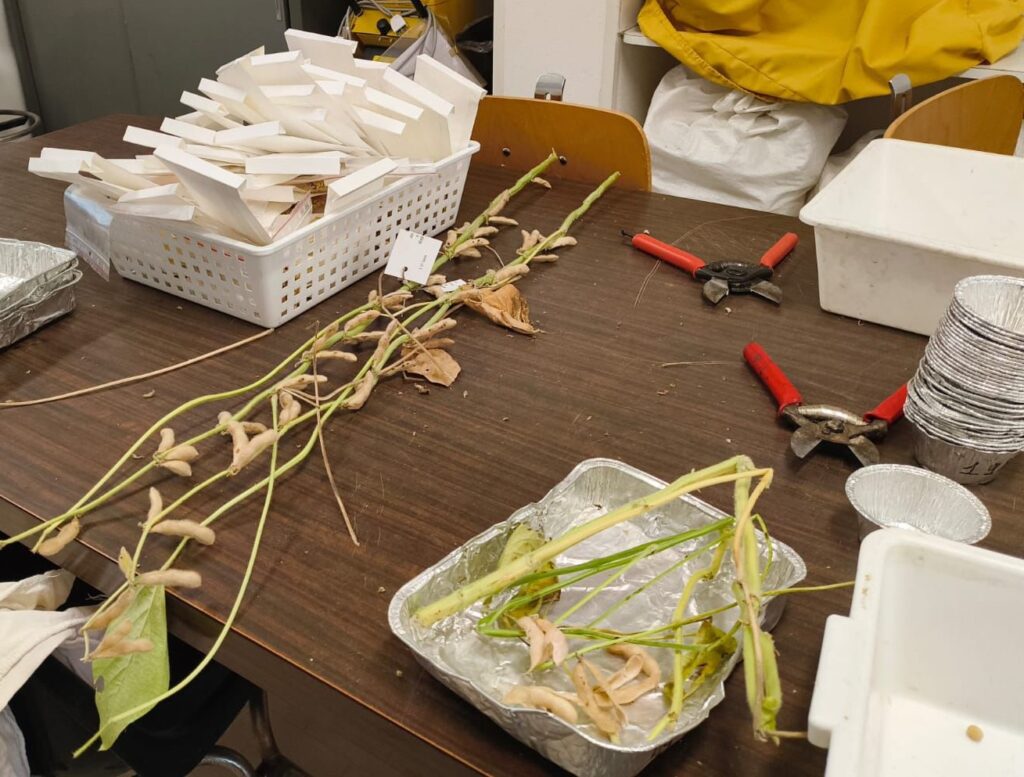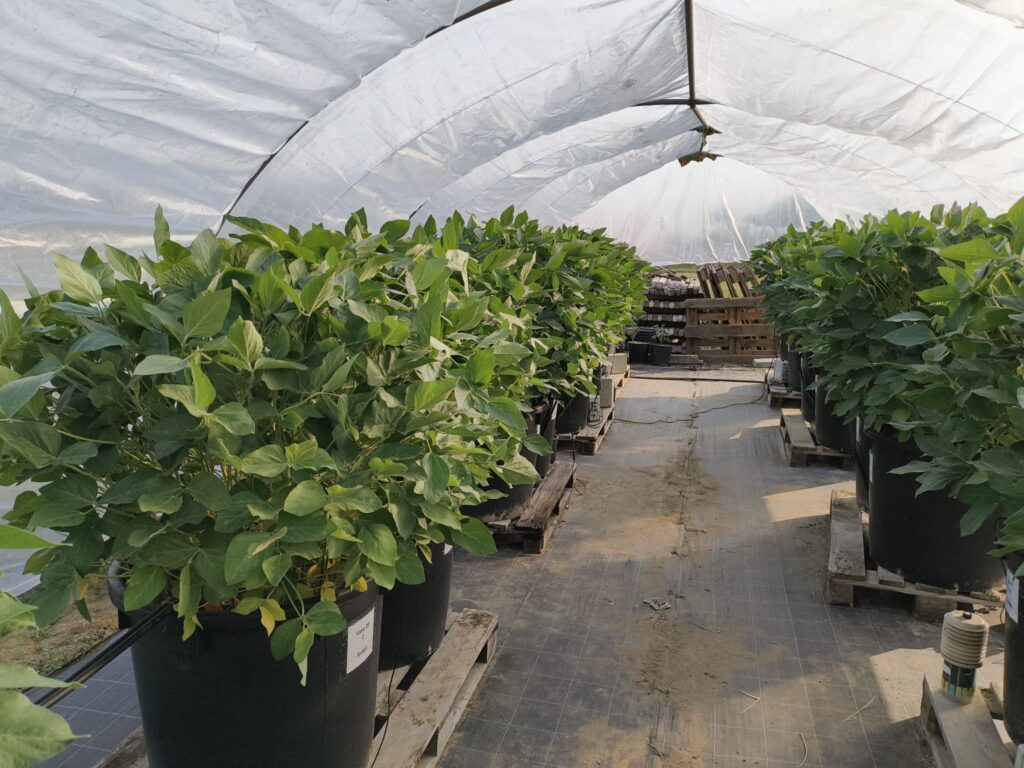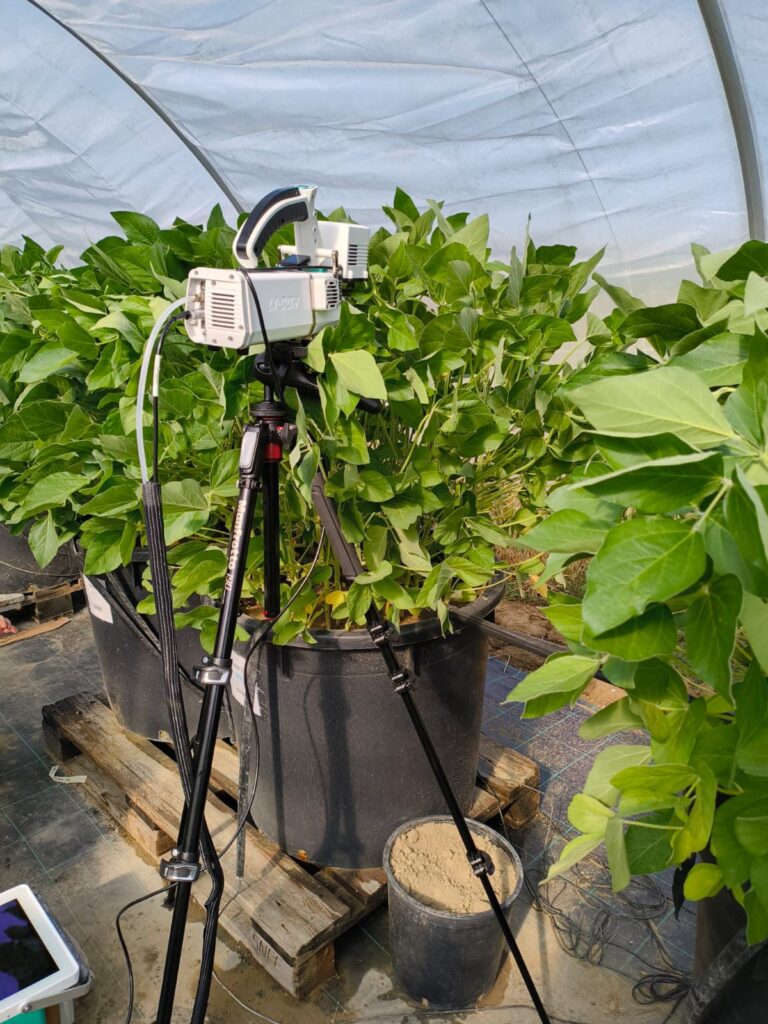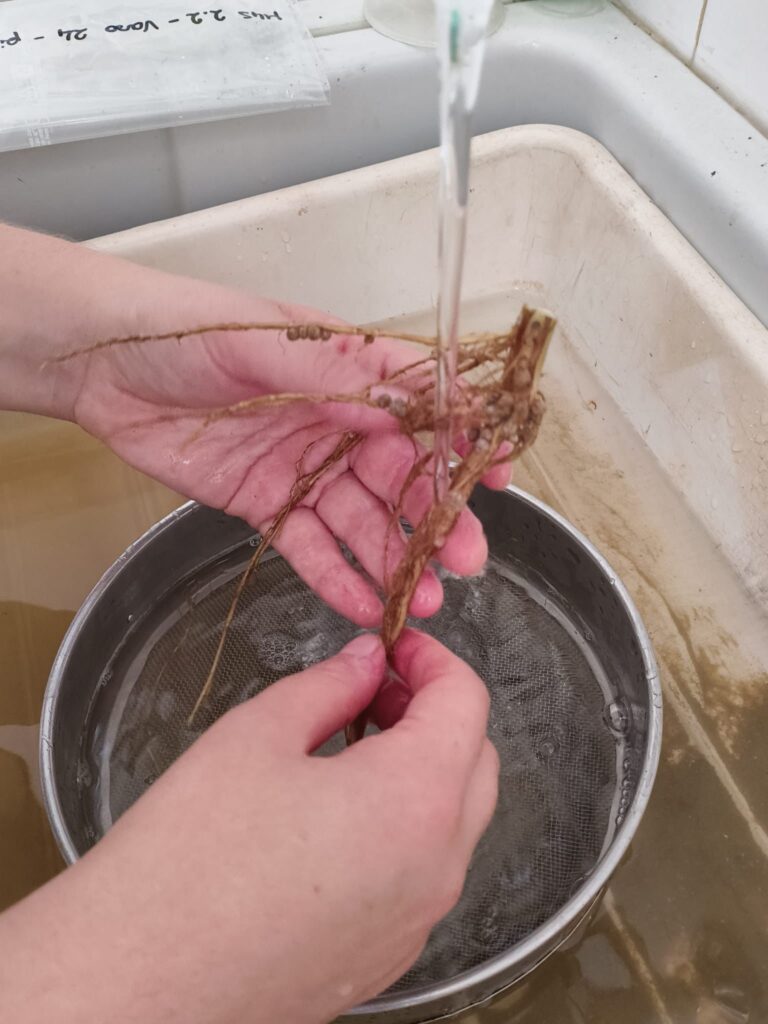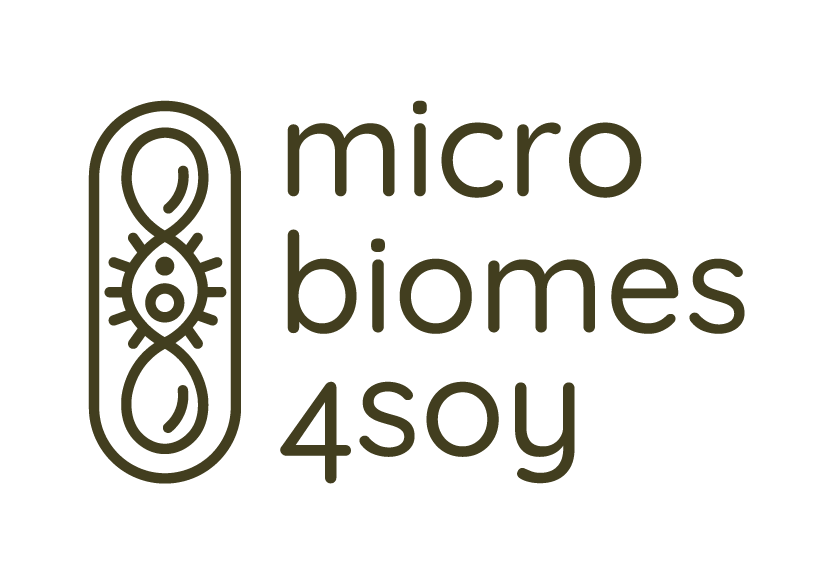Insights from the MICROBIOMES4SOY lysimeter trial
During the summer of 2025, researchers at the University of Bologna’s experimental farm conducted a lysimeter* trial as part of the MICROBIOMES4SOY project. The aim was to explore how microbial co-inoculation could improve soya bean growth, yield, and tolerance to drought stress.
*A lysimeter is a device used to measure the amount of water that moves through soil, allowing researchers to monitor water usage and simulate environmental conditions with precision.
In this trial, 24 large plastic tubs were placed beneath a tunnel covered with plastic film to prevent the intrusion of rainfall, creating semi-controlled conditions ideal for precise water monitoring.
Before sowing on 13 May, soya bean seeds were inoculated by Agrifutur with a combination of rhizobia (nitrogen-fixing bacteria that form symbiotic relationships with legumes) and beneficial microbial strains. These microbes are known to enhance nutrient uptake, stimulate plant growth, and improve stress tolerance.
Throughout the vegetative growth phase, researchers closely monitored plant development. At the full flowering stage, they assessed nodulation, i.e., the formation of nodules which are small root structures where rhizobia reside and fix atmospheric nitrogen. Both the number and biomass of nodules were measured to evaluate microbial activity.
To simulate drought stress, irrigation was withheld, allowing scientists to observe how the plants responded under water-limited conditions. Key physiological parameters, such as photosynthesis rate were recorded. Soil and rhizosphere samples were collected for microbial community analysis at the AIT laboratory.
The trial concluded with the harvest on 22 September, enabling researchers to assess seed yield and quality.
What’s next?
Data analysis is currently underway and is expected to yield valuable insights into how microbial inoculants can support soya bean productivity and resilience to environmental stress. This research marks a promising step toward sustainable crop management through microbiome enhancement, offering potential benefits for both agriculture and climate adaptation.
